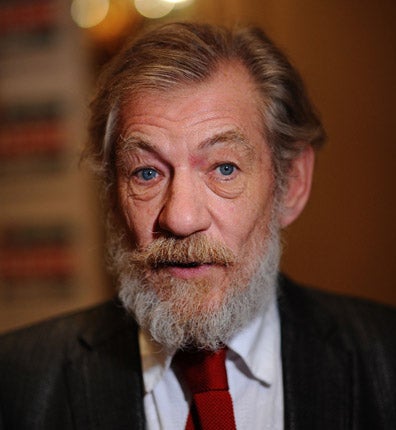Australian Rap, Radio 4, Thursday<br/>Jon Ronson On...Radio 4, Tuesday<br/>The Prelude, Radio 4, Sunday
Dust off the didgeridoos, the outback just got urban

Your support helps us to tell the story
From reproductive rights to climate change to Big Tech, The Independent is on the ground when the story is developing. Whether it's investigating the financials of Elon Musk's pro-Trump PAC or producing our latest documentary, 'The A Word', which shines a light on the American women fighting for reproductive rights, we know how important it is to parse out the facts from the messaging.
At such a critical moment in US history, we need reporters on the ground. Your donation allows us to keep sending journalists to speak to both sides of the story.
The Independent is trusted by Americans across the entire political spectrum. And unlike many other quality news outlets, we choose not to lock Americans out of our reporting and analysis with paywalls. We believe quality journalism should be available to everyone, paid for by those who can afford it.
Your support makes all the difference.It's easy to see rap as just one more weapon in America's battle for the hearts and minds and wallets of the world.
But it's not become a musical lingua franca for nothing, with its strong, simple structure that'll withstand anything you throw at it. There are even rappers in Bhutan, for goodness' sake.
So, it's almost inevitable that Australian Aboriginals, with their rich storytelling tradition, should turn to it, despite initial scepticism from traditionalists. The likes of Monkey Mark won them over: "I can rap in my grandmother's language – that excited the elders." The wonderful Australian Rap perfectly illustrated how rapping's a political act.
The highlight was the Wilcannia Mob, five lads who in 2001, when aged from nine to 14, went to a workshop run by the Sydney rapper Morganics and produced an account of how they spend their time. The resulting "Down River", with its hypnotic alignment of didgeridoo and beatbox (that's making percussion sounds with your mouth, grandad), became a national hit and was used by MIA on one of her albums. Both versions are on YouTube and are fabulous.
You'll also find on YouTube some of the weirdest music you'll ever hear, played by four sisters from Fremont, New Hampshire, who in the oddball Sixties were taken out of school by their bonkers father, given drums and guitars, and effectively locked in the basement to rehearse for five years before he unleashed them on the world. He called them The Shaggs.
In Jon Ronson On ... the eponymous negotiator of life's stranger byways caught up with them. As he put it, "they were like a girl group of Kaspar Hausers, inventing music from scratch". They seemed to have hated it, mostly, and when their dad died of a heart attack it was all over – until they were rediscovered and lionised by the likes of Frank Zappa, who called them "better than The Beatles".
It was clear these sixtysomethings had spent the rest of their lives putting it all behind them. They took Ronson to their old house, which was razed when neighbours bought the land.
"When they burnt it down they saw a face in the window," one of them said.
"Did they think it was your father?" Ronson asked.
"They did."
"That's the last thing you want," he said. They laughed.
I usually can't bear actors reading poetry – they ham it up, wringing significance from every syllable. Poetry doesn't need to be acted, it just needs to be read. But Sir Ian McKellen pitched it just right in The Prelude, a mesmerising reading of what William Wordsworth described as "a poem on the growth of my own mind".
His decision to use common lingo, nothing high-flown, was reflected in Sir Ian's cool, almost conversational delivery. And Jon Harle's subtle musical touches, and the unobtrusive natural-sound effects, were dead-on. This wasn't really a programme to listen to while you were doing something else: you had to sit down and give it your full attention. I did, and it was radio heaven.
Join our commenting forum
Join thought-provoking conversations, follow other Independent readers and see their replies
Comments